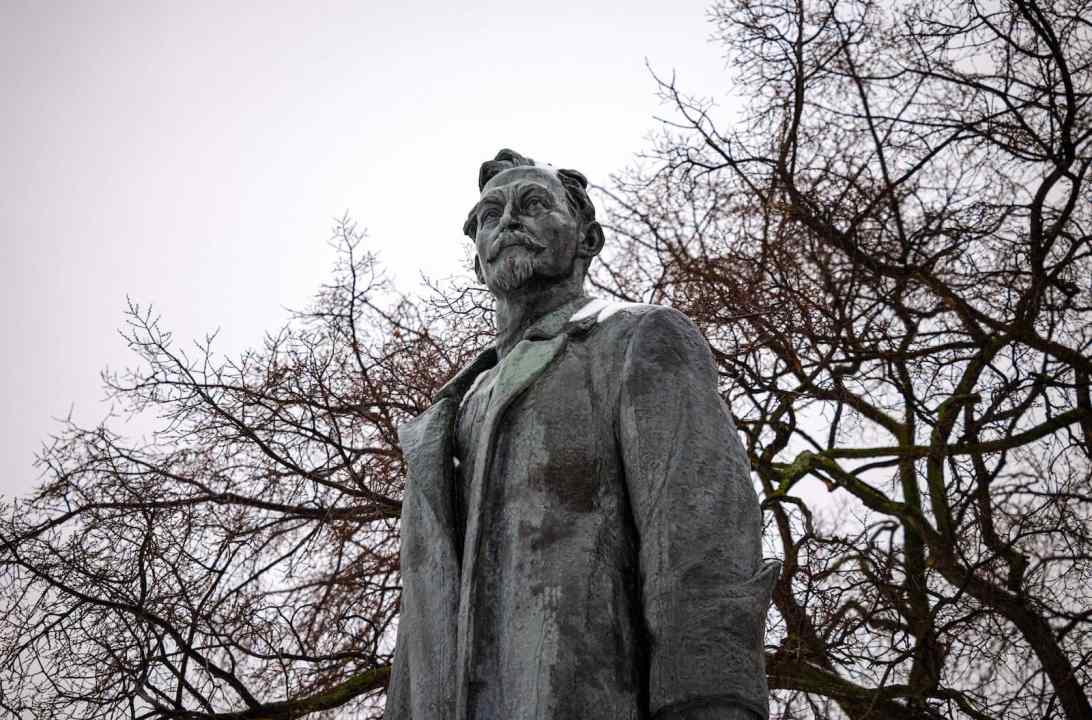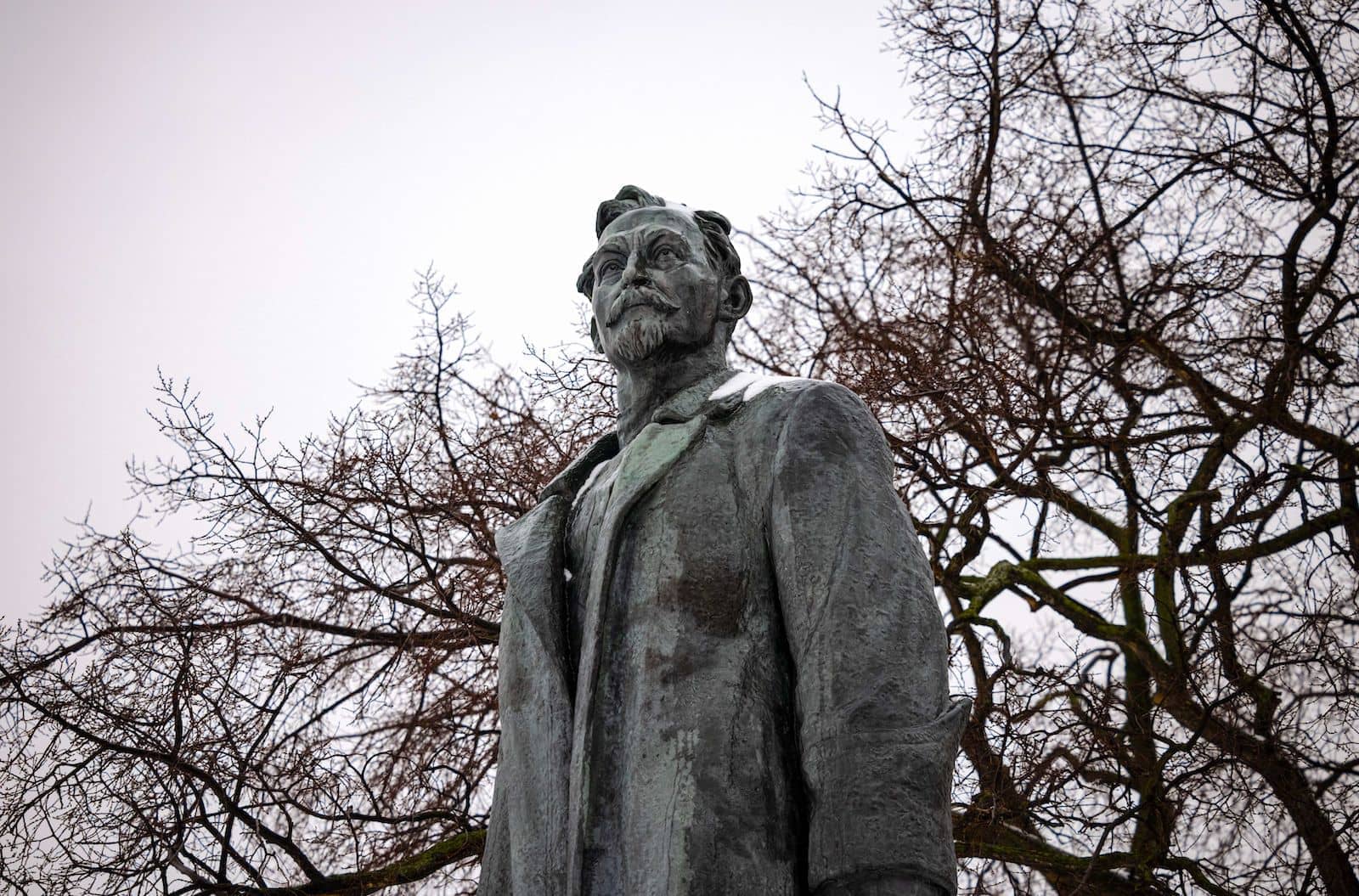Nobody knows how long people live in Dzerzhinsk – life expectancy statistics for the Russian city, 250 miles east of Moscow, aren’t released to the public. In the days of the Soviet Union, it was closed to outsiders and left off official maps, but those in neighbouring Nizhny Novgorod joked that residents must have purple skin and second heads because of the emissions from its secretive chemical weapons plants. In recent years, however, it has gained notoriety as one of the most polluted places on the planet, with a study after the fall of the Iron Curtain reporting locals usually died in their mid-forties.
‘You can make more money here than anywhere else,’ Andrei, a local part-time taxi driver in his early twenties explained as we sped down the snow-lined highway towards the city last winter. ‘Engineers and factory workers earn the most, but everyone’s salary is better as a result.’ His dream, he explained, was to save enough cash to move to America, trading Russia’s icy roads for a job as a trucker on Route 66.
In the central square is a monument to the man who gives the city its name – Bolshevik revolutionary Felix Dzerzhinsky. As the founder of the brutal Cheka secret police, which later became the KGB, he was the architect of the Red Terror that ultimately claimed the lives of more than a million Russians, Belarusians, Ukrainians, Kazakhs, Tatars, and Lithuanians. ‘Iron Felix’, as he was known, signed the death warrants, convened the firing squads and helped build one of the most oppressive systems of state control ever seen, transforming the world’s largest country into an open-air prison.
Politicians have willingly excused the brutal ways in which the likes of Stalin and Dzerzhinsky made their country strong
And yet few Russians seem to see anything sinister in the fact mass murderers are held up as cultural icons. ‘Why should we be ashamed of our history?’ Elena, a retired schoolteacher walking her dog on Dzerzhinsk’s central square replied when asked how she felt about the association. ‘For better or for worse, it is our history, and nobody can tell us we should turn our backs on it. We don’t need to destroy statues – this isn’t Ukraine.’
The tearing down of Soviet war memorials is just one of the accusations made by President Vladimir Putin against the neighbouring nation, presented as proof Ukrainians sympathise with Nazis. Despite that, Russian forces have reportedly destroyed dozens of monuments to the Red Army amid their frenzied assault, including one in the city of Bucha. where evidence shows they massacred civilians on a scale not seen since Hitler’s troops marched in. Those same soldiers are the ones state television still casts as ‘liberators’.
In the West, fierce arguments have broken out over whether to take down statues of former slave traders, Confederate generals and colonial governors. In Russia, however, controversial landmarks are actively being put up. Last year, Moscow residents were asked to vote on plans to install a new statue of Dzerzhinsky outside his former secret police headquarters on Lubyanka Square, now home to the FSB internal security agency. Nearly half of locals backed erecting the bust, metres away from where thousands of their fellow countrymen were executed or deported to the Gulag prison camps. These days, its officials are tasked with arresting anyone who protests against the disastrous invasion of Ukraine.
A survey conducted by one of the few trusted pollsters, the Levada Center, last June found that by far the most popular historical figure among citizens is Josef Stalin, the longest serving and cruellest leader of the USSR. Nearly 40 per cent of the 1,620 respondents chose him, compared to just 20 per cent in 1994. The largest opposition grouping in parliament, the Communist party, has spent years successfully campaigning for the reinstallation of monuments to the man who ruled the Soviet Union for more than three decades after his cult of personality was dismantled by his successor Nikita Khrushchev. Stalin’s face can be seen on flags at their rallies and on bumper stickers sold to their supporters.
Strangely, though, the reverence for that bygone era doesn’t come from ethnic nationalism; Stalin was a Georgian, while Dzerzhinsky hailed from Polish nobility. Those seen as the greatest champions of Russian nationhood are those who governed Russia as just one part of a multinational union. And yet, Boris Yeltsin, the man who dissolved the USSR and created modern Russia is despised by his countrymen as the man who precipitated the decline of their nation. Meanwhile the revolutionaries who butchered their forebears are said to have made it great, even by people who don’t share their ideology.
Putin has been careful to align himself with this seemingly contradictory national story. During his time in office, the state has whitewashed Stalin’s record, emphasising his role as a wartime leader and the rapid industrialisation he presided over. In 2014, months after his annexation of Crimea, Putin signed a decree renaming an elite police squadron the ‘Dzerzhinsky Division’, honouring the murderous Cheka chief yet again. In an effort to find an identity for modern Russia, the hangmen of the Soviet Union are being dug back up.
To challenge that version of history, or attempt to learn lessons from it, is an act of apparent disloyalty. At the beginning of the year, human rights group Memorial, dedicated to preserving the memory of those who died in communist-era purges, was closed by a Moscow court over opaque claims of foreign funding. Its sister organisation, which campaigns against injustice and repression in the modern era, was also liquidated.
Politicians have willingly excused the brutal ways in which the likes of Stalin and Dzerzhinsky made their country strong. Whether they die of pollution in Dzerzhinsk, burn to death inside a tank in the Donbas or are executed by Russian soldiers in Bucha, the lives of ordinary people clearly matter very little in the grand scheme of Putin’s plans.








Comments